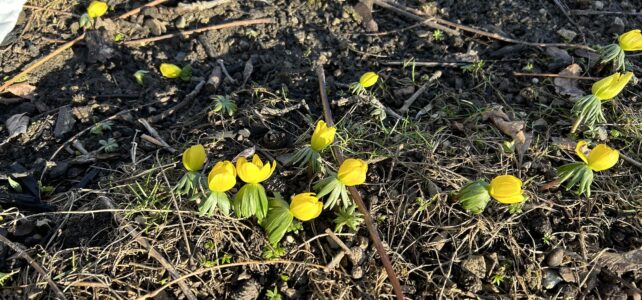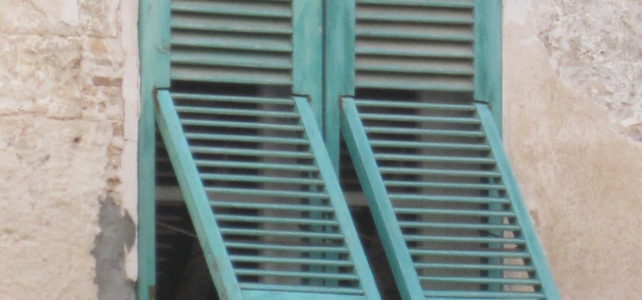I took a walk in the sunny cold air this morning, just once around the block before lunch, and chatted with landscapers piling dark, smelly mulch around the gardens of an old, ranch double. We smiled. One man predicted warm weather ahead. “Suddenly, spring is here!” he said. And so it seemed.
But just when I had hope of swapping winter parkas for my favorite lightweight fleece, a fierce storm brought lighting and thunder, pelting rain and hail, plummeting temperatures, and tree-felling tornados.
This is Ohio after all.
I know “you should never say ‘never’,” but I’ll chance it. Change is never smooth. No. It comes with starts and stops, pains and joys, and not necessarily in that order. It demands letting go of the old before we can embrace the new. And it’s never once and done.
The plants I thought were dead after the first freeze have been growing and changing in one way or another, unobserved, through the Midwest’s persistent winter until they seem to pop up overnight. Like the crocuses that painted my neighbor’s lawn with purple one morning. Of course, they’d long been working toward that moment; I’ve just not been alert to the process. Change is rarely predictable. And with growing things, it’s seldom sudden.
How many miniscule shifts had protective leaf scales made before I finally noticed them relaxing, inviting buds to soak up sun and stretch their sweet bodies into warmer air? Uncountable.
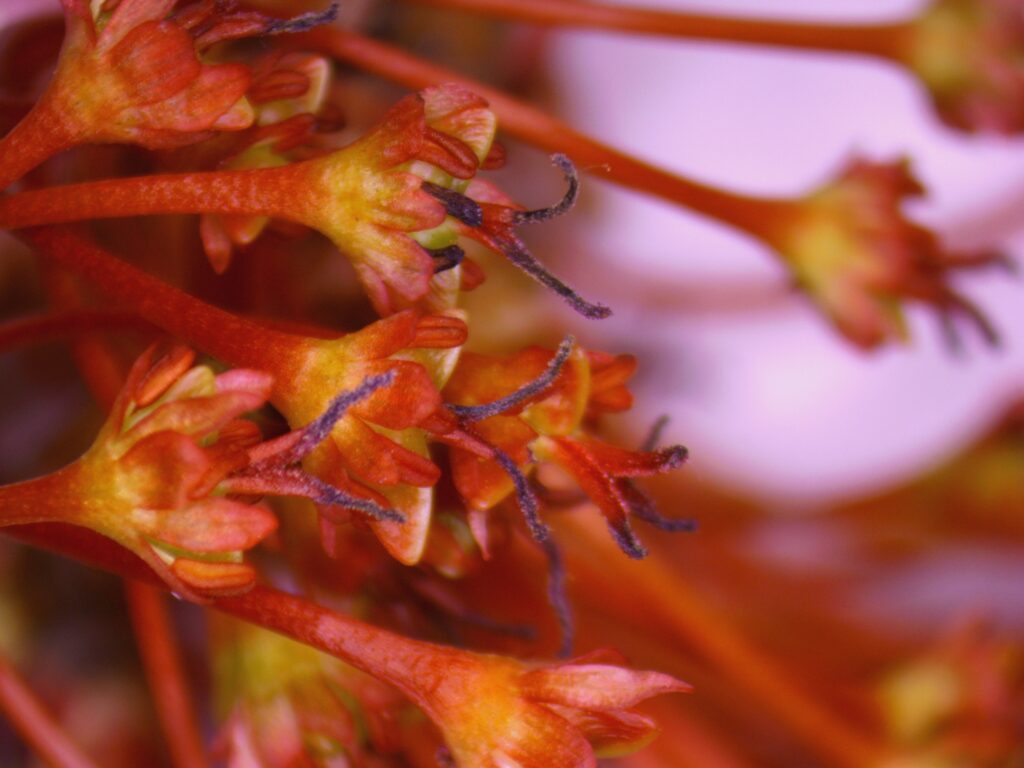
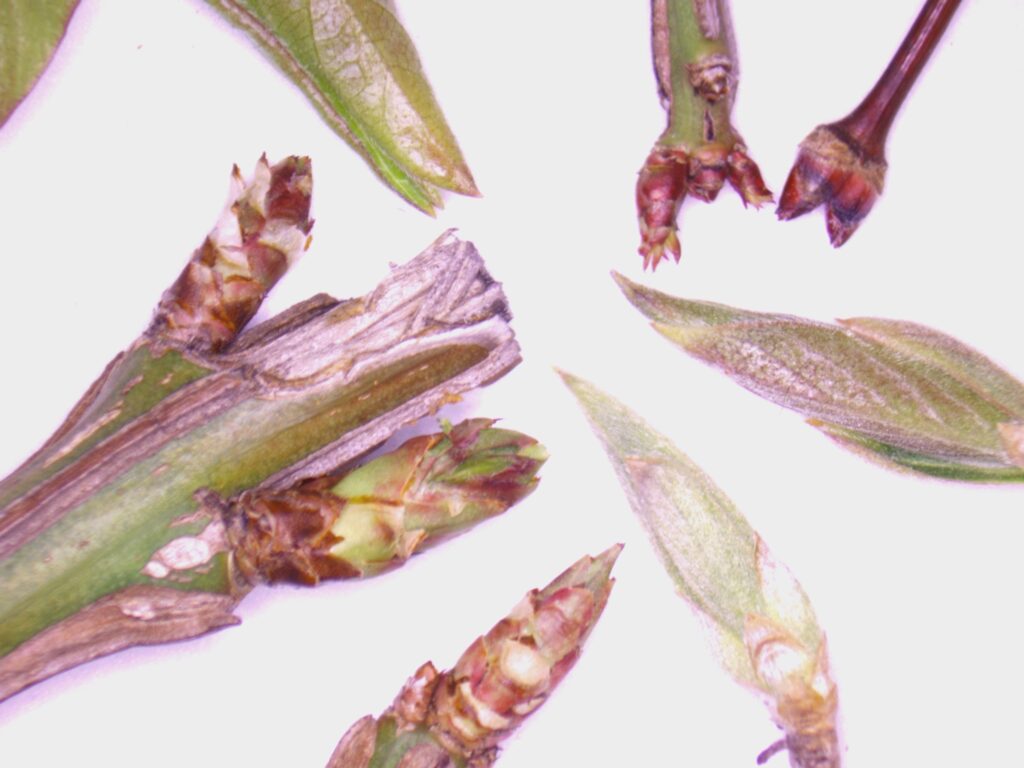
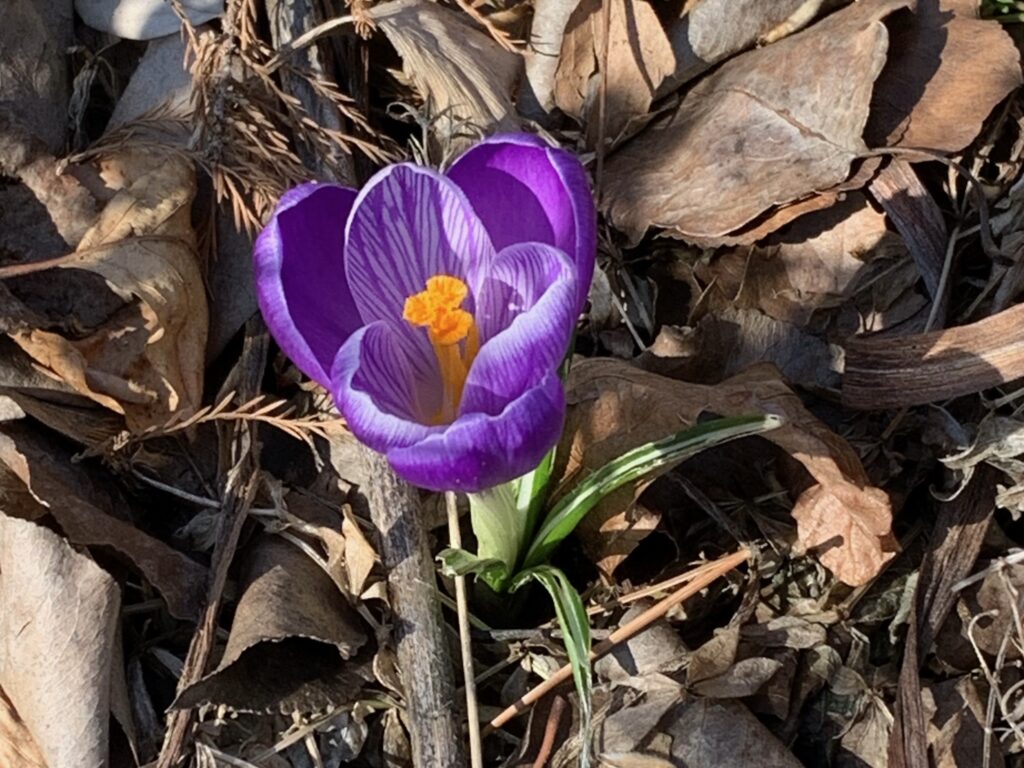
So, as far as spring goes, I try to wait patiently, trusting that the forces of change are at work in the background. Eventually, enough atoms will have shifted, insects nibbled, and water and temperature flowed up and down and around, that even with my limited abilities to observe, I can see that something’s afoot.
I cultivate the habit of looking and listening closely. I slow down on my walks, spend more time gazing out my windows, and get comfortable with quiet so nature’s sounds have a place to sing.
Is this why Mary Oliver started every day standing in the doorway, notebook in hand, welcoming morning, noticing? She knew that to see the flow of glory she had to be there every moment, open, senses alert, ready to be amazed.
Can I do the same so when skunk cabbage appears in marshy places or forsythia bushes bloom or maple leaves unfurl after their flowery tassels have festooned the trees and then fallen to the sidewalk, or more birdsong fills the air – so when these things happen, I am at the door to welcome them as surprising yet awaited guests who arrive in their own time.
It’s not just the “out there” physical, observable matter that changes under cover. Movement within the human spirit is ongoing and often unnoticed. My spiritual eye is frequently clouded and unable to see. I don’t stay still long enough for it to focus. I don’t sit quietly long enough for my inner ear to hear sacred whispers.
When a shroud of darkness seems to suddenly lift from my soul, there is likely nothing sudden about it. Like plants in winter, Holy Presence that dwells within has been busy opening me bit by bit to its love and warmth that have been there all along. So I believe.
When I experience a moment of grace or encounter, am I finally noticing the ongoing transformation happening from the inside out? I wonder, do human beings need an accumulation of “holy” before they see it?
Like Mary Oliver, I can stand at the door of my house and my soul and be still. Quiet. Patient. Attentive. Trusting that, seen or not, the miracle of transformation is happening, inside and out. And it is amazing.
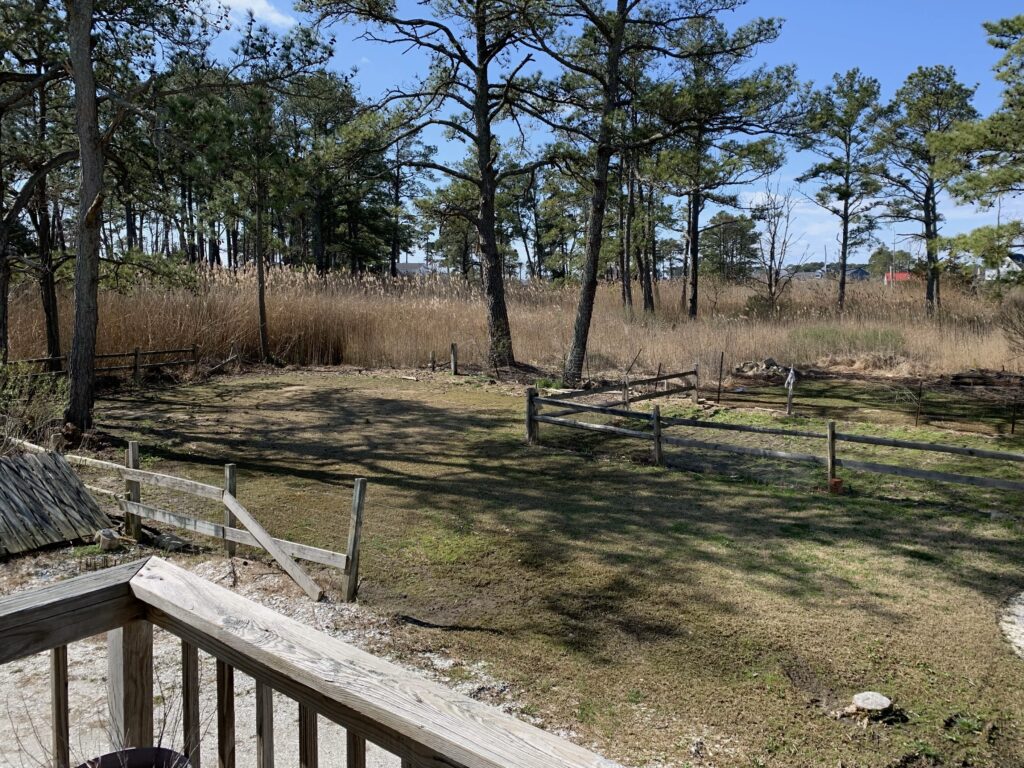
Photos: Mary van Balen
